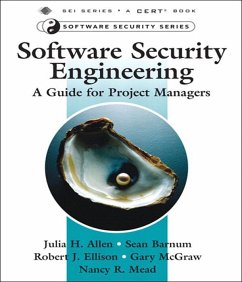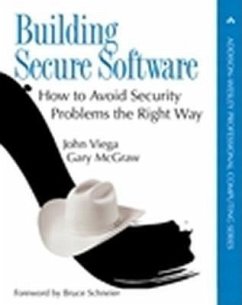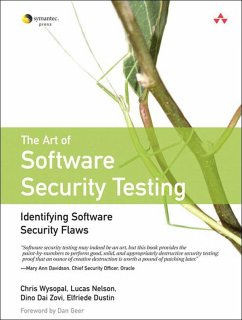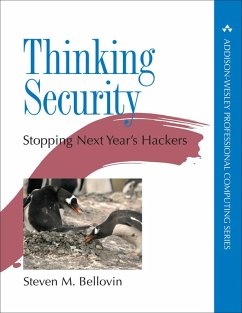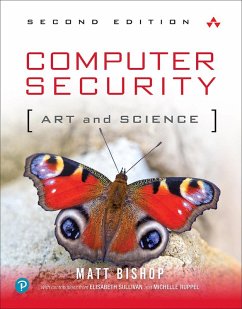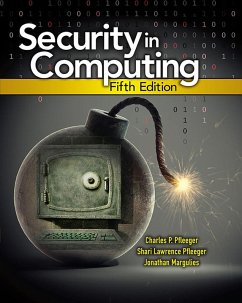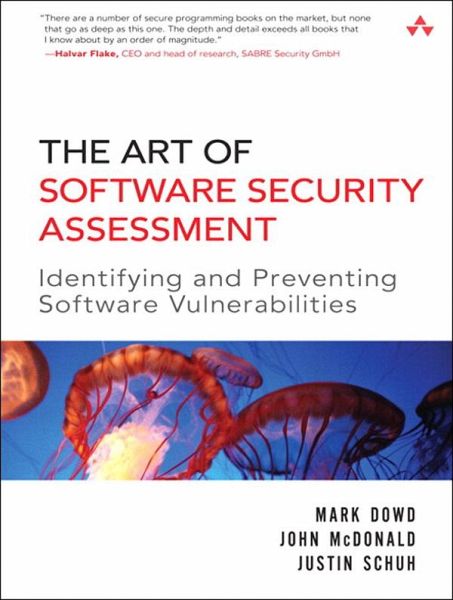
Art of Software Security Assessment, The (eBook, ePUB)
Identifying and Preventing Software Vulnerabilities
Versandkostenfrei!
Sofort per Download lieferbar
44,95 €
inkl. MwSt.
Weitere Ausgaben:

PAYBACK Punkte
22 °P sammeln!
The Definitive Insider's Guide to Auditing Software SecurityThis is one of the most detailed, sophisticated, and useful guides to software security auditing ever written. The authors are leading security consultants and researchers who have personally uncovered vulnerabilities in applications ranging from sendmail to Microsoft Exchange, Check Point VPN to Internet Explorer. Drawing on their extraordinary experience, they introduce a start-to-finish methodology for "ripping apart" applications to reveal even the most subtle and well-hidden security flaws.The Art of Software Security Assessment ...
The Definitive Insider's Guide to Auditing Software Security
This is one of the most detailed, sophisticated, and useful guides to software security auditing ever written. The authors are leading security consultants and researchers who have personally uncovered vulnerabilities in applications ranging from sendmail to Microsoft Exchange, Check Point VPN to Internet Explorer. Drawing on their extraordinary experience, they introduce a start-to-finish methodology for "ripping apart" applications to reveal even the most subtle and well-hidden security flaws.
The Art of Software Security Assessment covers the full spectrum of software vulnerabilities in both UNIX/Linux and Windows environments. It demonstrates how to audit security in applications of all sizes and functions, including network and Web software. Moreover, it teaches using extensive examples of real code drawn from past flaws in many of the industry's highest-profile applications.
Coverage includes
. Code auditing: theory, practice, proven methodologies, and secrets of the trade
. Bridging the gap between secure software design and post-implementation review
. Performing architectural assessment: design review, threat modeling, and operational review
. Identifying vulnerabilities related to memory management, data types, and malformed data
. UNIX/Linux assessment: privileges, files, and processes
. Windows-specific issues, including objects and the filesystem
. Auditing interprocess communication, synchronization, and state
. Evaluating network software: IP stacks, firewalls, and common application protocols
. Auditing Web applications and technologies
This is one of the most detailed, sophisticated, and useful guides to software security auditing ever written. The authors are leading security consultants and researchers who have personally uncovered vulnerabilities in applications ranging from sendmail to Microsoft Exchange, Check Point VPN to Internet Explorer. Drawing on their extraordinary experience, they introduce a start-to-finish methodology for "ripping apart" applications to reveal even the most subtle and well-hidden security flaws.
The Art of Software Security Assessment covers the full spectrum of software vulnerabilities in both UNIX/Linux and Windows environments. It demonstrates how to audit security in applications of all sizes and functions, including network and Web software. Moreover, it teaches using extensive examples of real code drawn from past flaws in many of the industry's highest-profile applications.
Coverage includes
. Code auditing: theory, practice, proven methodologies, and secrets of the trade
. Bridging the gap between secure software design and post-implementation review
. Performing architectural assessment: design review, threat modeling, and operational review
. Identifying vulnerabilities related to memory management, data types, and malformed data
. UNIX/Linux assessment: privileges, files, and processes
. Windows-specific issues, including objects and the filesystem
. Auditing interprocess communication, synchronization, and state
. Evaluating network software: IP stacks, firewalls, and common application protocols
. Auditing Web applications and technologies
Dieser Download kann aus rechtlichen Gründen nur mit Rechnungsadresse in A, B, BG, CY, CZ, D, DK, EW, E, FIN, F, GR, HR, H, IRL, I, LT, L, LR, M, NL, PL, P, R, S, SLO, SK ausgeliefert werden.




